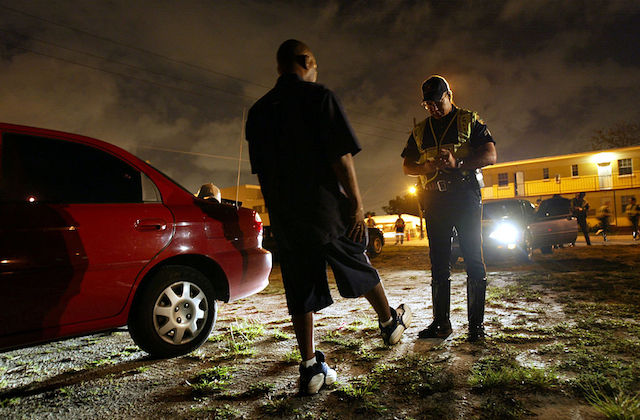People of color living in the United States won’t be surprised by the results of a recent study published by researchers from Stanford University. The Stanford Open Policing Project has "collected and standardized over 200 million records of traffic stop and search data from across the country," which resulted in sweeping evidence of "significant racial disparities in policing," according to a new report.
NBC News reviewed data from the project and noted that officers stop and search Black and Latinx drivers based on less evidence than what they require to stop and search White drivers. Meanwhile, White drivers "are more likely to be found with illegal items." From the report:
rnt
After accounting for age, gender and location, we find that officers ticket, search and arrest Black and Hispanic drivers more often than Whites. For example, when pulled over for speeding, Black drivers are 20 percent more likely to get a ticket (rather than a warning) than White drivers, and Hispanic drivers are 30 percent more likely to be ticketed than White drivers. Black and Hispanic motorists are about twice as likely to be searched compared to White drivers.
This study doesn’t attempt to answer if the officers were knowingly policing with racial bias, but instead digs into the traffic stop data to "infer that race is a factor when people are pulled over—and that it’s occuring across the country," NBC reports.
The Stanford Open Policing Project explains,
rnt
These patterns illustrate the disparate impact of policing on minority communities. However, as with stop rates, these disparities may not be due to bias. In nearly every jurisdiction, stopped Black and Hispanic drivers are searched more often than Whites. But if minorities also happen to carry contraband at higher rates, these higher search rates may stem from appropriate police work. Disentangling discrimination from effective policing is challenging and requires more subtle statistical analysis.
Sharad Goel, an assistant professor in management science and engineering at Stanford and a co-author of the study, spoke to NBC about the group’s findings. "Because of this analysis," Goel began, "we’re able to get to that anecdotal story to say this is really happening."
The team’s research relied on stats from state and city agencies, however not all police agencies keep track of this information or are willing to share it; four states claimed to have no information on the race of the drivers pulled over, and 15 states wouldn’t confirm or deny collecting traffic stop data.
